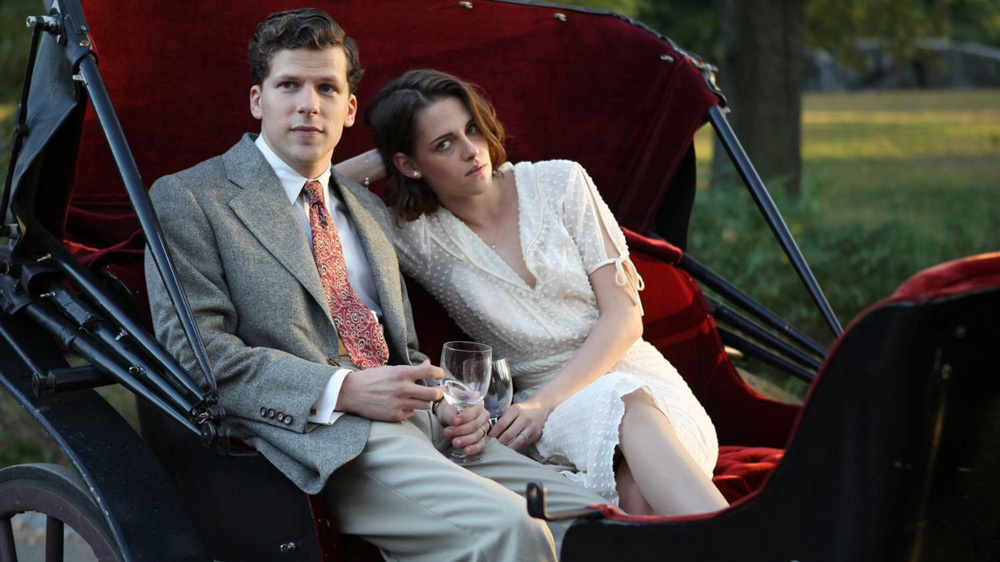The film takes place in 1930s America, jumping coast to coast from New York City to Los Angeles, in perhaps one of the most interesting time periods in U.S. history. Eisenberg stars as Bobby Dorfman, a timid but adorable Jewish New Yorker who leaves his dysfunctional family and goes to Los Angeles to work for his uncle Phil (Steve Carrell, The Big Short) who is a big-shot Hollywood agent. Immediately after his arrival, Bobby falls in love with Phil’s secretary, Vonnie (Kristen Stewart, The Twilight Saga), a young and beautiful girl, seemingly still untarnished by the excess and scandal of Hollywood. Things never quite work out between Bobby and Vonnie, leading to his disillusionment and return to New York to help his brother run a nightclub. He becomes successful, marries the gorgeous socialite Veronica (Blake Lively, The Shallows), and things are going in his favor... until Vonnie shows up in New York. Café Society explores the nature of romance and attempts to answer the question: can you truly love two people at once? Answer: inconclusive.
As one would expect, Café Society is replete with Allen’s off-kilter, dark humor and his commentary on being part of a Jewish New York family. His writing has always made me laugh, and Eisenberg did Allen a great service by truly bringing the dialogue to life. Jesse Eisenberg is perhaps the best actor to cast as a bashful Jewish boy because, well, that’s what he is. His performance was endearing and the strongest one out of the entire cast. I was thoroughly disappointed in Kristen Stewart’s performance. Though I have never been a huge fan of her work, I expected that working with such a prolific filmmaker would cause her to rise to the occasion. That is not at all what happened. In fact, she seemed like a fish out of water throughout the entire film, never fully fitting into the 1930s setting. Her performance had some good moments, but was lackluster overall and incredibly awkward. Blake Lively also gave a subpar performance, but she fit well into the glamourous life of 1930s Manhattan. Her ability to work within the setting made her performance feel much more comfortable.
Aside from Allen’s eccentric but now expected writing and direction, the film’s atmosphere was its greatest strength. The costume design was impeccable and beautiful, making each member of the cast look as if they were plucked right from the 1930s. Both the Hollywood and Manhattan sets embodied the grandiose style of the time and place. In typical Allen fashion, music was used generously as both score and diegetically on-screen. The lighting in every outdoor setting gave the film a dreamy and glowing look, as if the world was in a permanent state of sunset. Everything about this film was aesthetically pleasing and contributed to its overall effectiveness.
I really enjoyed Café Society. It was lovely to both watch and listen to. My greatest qualm with the film was its incredibly inconsistent performances. The discomfort generated by Kristen Stewart’s role took me out of the film completely at times, and I find it hard to believe that Woody Allen couldn’t find an actress just as beautiful as Blake Lively who can act a little better. Fans of Woody Allen will certainly enjoy Café Society, and it is a must-see for anyone interested in Old Hollywood.
Grade: B+

 RSS Feed
RSS Feed
